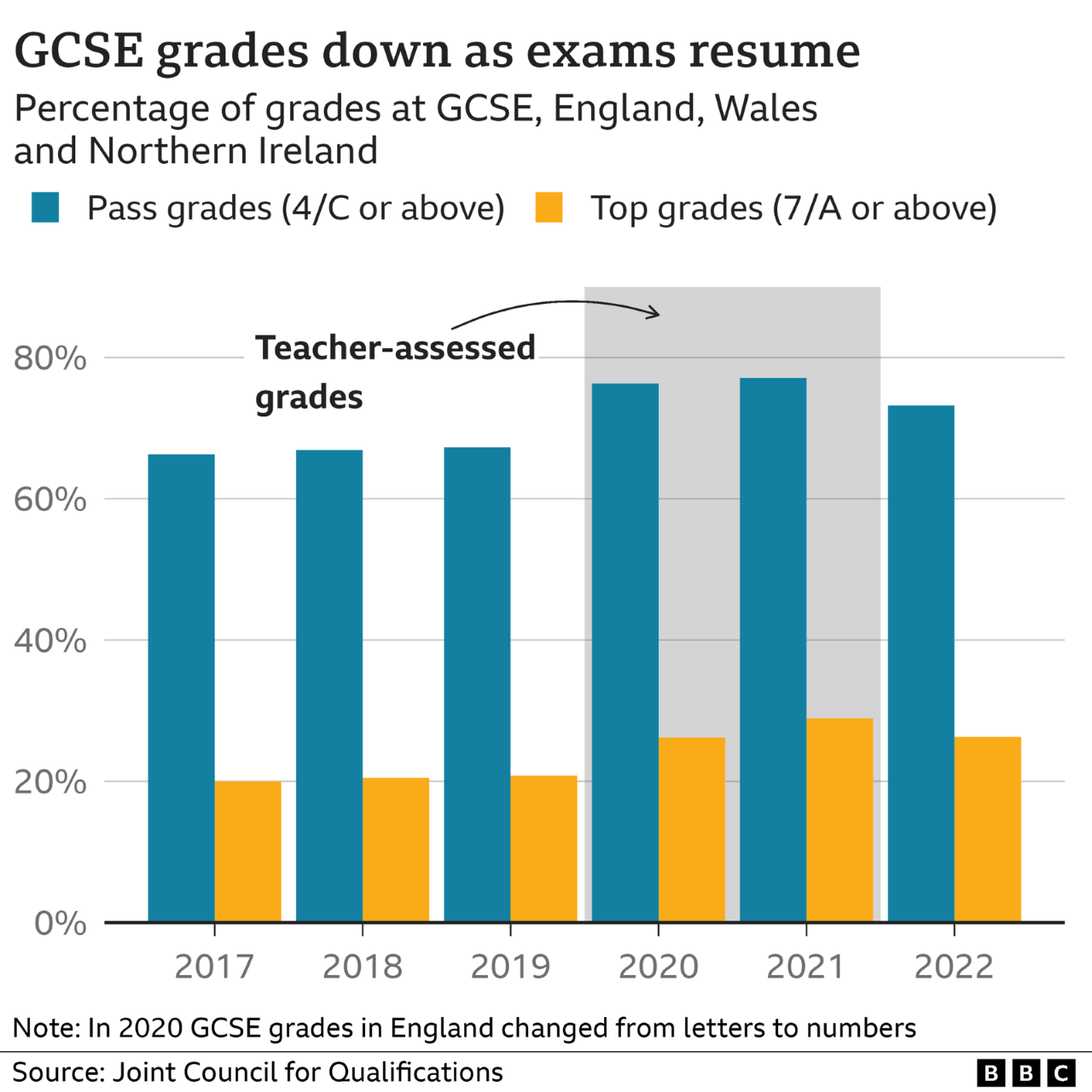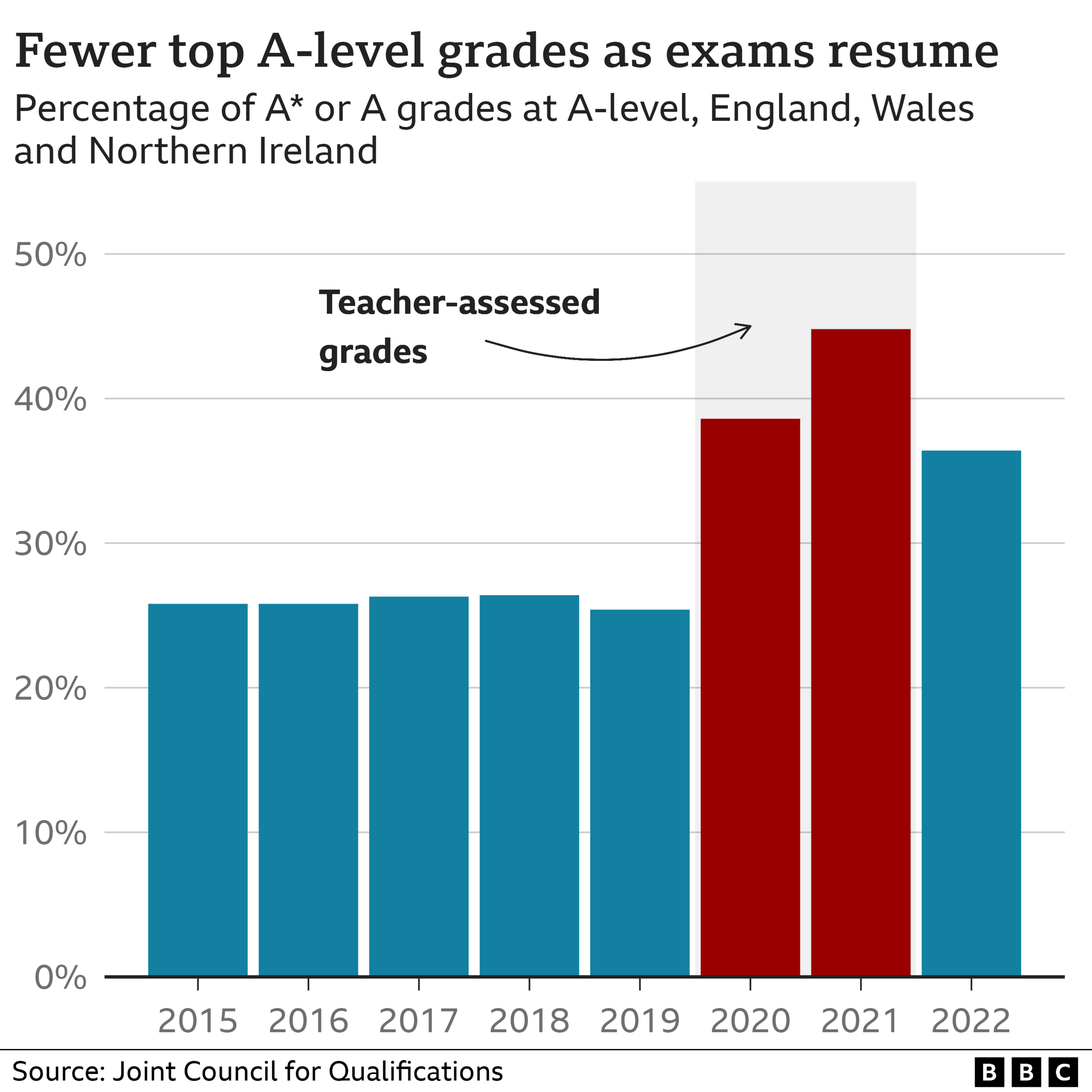GCSE and A-level grades to fall to pre-Covid levels in England
- Published

GCSE, AS and A-level grades are set to fall in England next year, the exams watchdog Ofqual has confirmed.
They will be "much closer" to pre-pandemic levels after three years of adjustments, said Dr Jo Saxton, its chief regulator.
But pupils' grades will be "protected" from the disruption caused by the Covid pandemic.
Schools have welcomed the announcement, but there is concern that disadvantaged pupils could lose out.
Exams were cancelled in 2020 and 2021, and teacher-assessed grades led to a boom in top marks.
This year's marking system was adjusted so that grades reflected a "midway point" between 2019 and 2021. Similar plans were put in place in Northern Ireland and Wales.
Dr Saxton said a return to pre-pandemic grading next year was "the next step in getting back to normal".
School closures in the 2020 and 2021 lockdowns did not directly affect the courses of most students sitting GCSE and A-levels next year.
But they did affect those pupils earlier in their school lives - and many will have experienced further disruption because of Covid last year.
To counteract that disruption, Dr Saxton said students taking exams in 2023 would be "protected...if their exam performance is a little lower than before the pandemic".
Grade boundaries will be informed by "grades achieved in pre-pandemic years by cohorts of students, along with prior attainment data", she said.
"Broadly speaking, therefore, a typical student who would have achieved an A grade in their A-level geography before the pandemic will be just as likely to get an A next summer, even if their performance in the assessments is a little weaker in 2023 than it would have been before the pandemic."
Students will no longer have advance information of exam content, but those taking GCSE maths, physics and combined science, will still have formulae and equation sheets.


The Association of School and College Leaders welcomed what it called a "safety net" to "ensure that grades do not fall lower" than results in 2019 .
The NAHT union said the announcement "recognised" that pupils taking exams next year have experienced disruption, and said the steps should "create fairness" across the whole year groups.
However, it said it was concerned about "individuals who have faced more disruption than others".
Those worries were echoed by the Education Policy Institute, which stressed that "disadvantaged students" and students in the north of England had "experienced greater learning loss" during Covid.
The Department for Education and Ofqual will issue guidance for schools on gathering assessment evidence, just in case students are ever unable to take exams.
This summer, 73.2% of GCSEs in England, Wales and Northern Ireland were marked at grades 4/C and above, compared to 67.3% in 2019 and 77.1% in 2021.
At A-level, about 36.4% of entries were marked at A* and A, compared to 25.4% in 2019 and 44.8% in 2021.
Education Secretary Kit Malthouse said students "expect fairness in exams and grading arrangements, which is why we are transitioning back to pre-pandemic normality".
- Published25 August 2022

- Published25 August 2022

- Published18 August 2022

- Published18 August 2022
